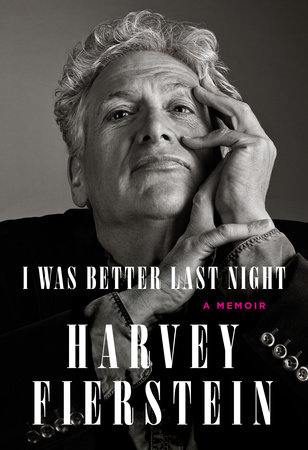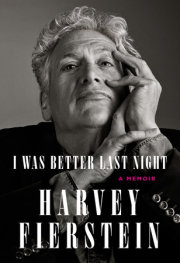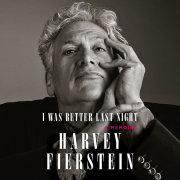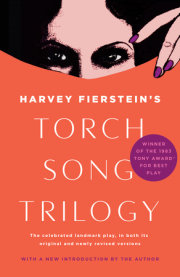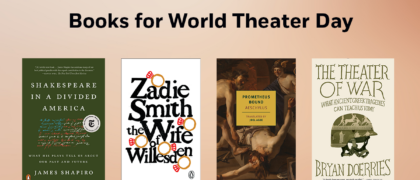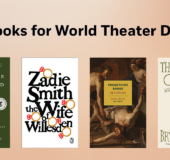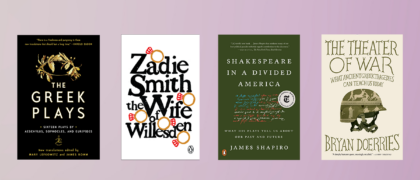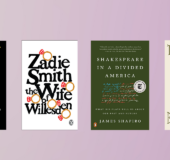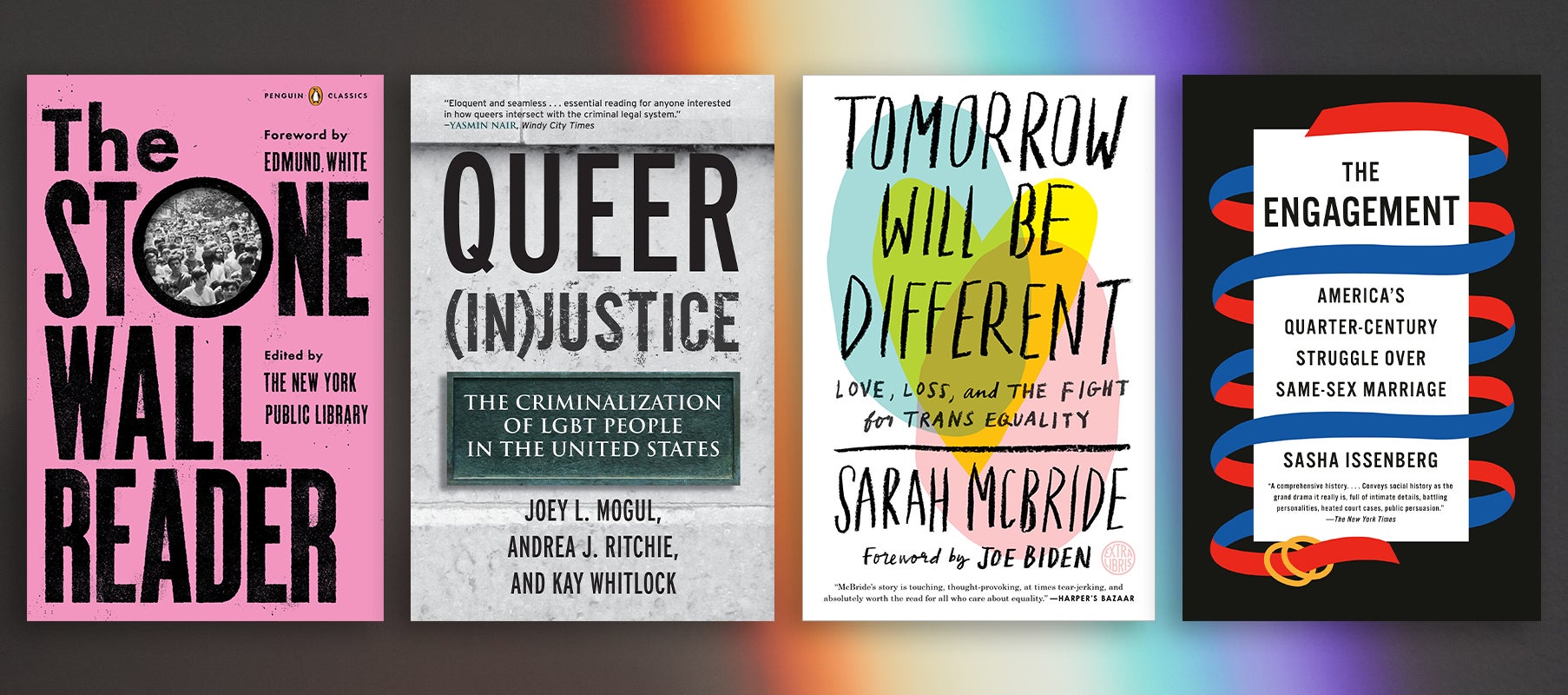On Befriending Robin Williams & Making Mrs. DoubtfireWorking on Mrs. Doubtfire was a dream. Director Chris Columbus devised a brilliant system of capturing all that was Robin [Williams]. We did each shot over and over again as scripted until Chris was sure he had what he needed, and then Robin was set loose to improvise. This was especially fun when we worked on the scenes transforming him into Mrs. Doubtfire. But the shot I remember most was the one where Robin knocked on my door and asked me to make him into a woman. I did the line as written a few times until Chris told me he had what he needed. Now it was my turn to improvise. I cannot tell you how many times Robin knocked, said, “Can you make me a woman?” and I reacted. Dozens of takes, dozens of lines . . . until Chris finally said, “Cut. We’ve got enough."
We were just about to step off set when I was struck with an inspiration. I screamed out, “Just one more.” Chris was game. We went back and I delivered the line that has become a meme for all occasions: “Oh, honey, I’m so happy.”
Losing Robin was impossible for all who loved him. Cliché be damned, he was like a brother to me.
Always generous, supportive, inclusive whenever we could get together. I don’t know why, but some people just walk right into your heart and make themselves at home. That’s the way it always felt with Robin. As with any true friendship, it was our private time that I cherished most. We were once having dinner in San Francisco when I told him I needed to get back to LA in the morning. As it happened, a studio was sending its private jet to bring him to Hollywood for a meeting. He invited me to come along. We were the only ones in the plane’s cabin besides a flight attendant. For reasons I don’t recall, there was a guitar on the floor. Robin picked it up and began to improvise. Nonsensical as it sounds, for the next hour I took on the role of Spanish actress Charo and he assumed the role of a chihuahua as we fought over which one of us Xavier Cugat loved best. It was a musical. We were in cuchi-cuchi heaven.
Of all questions the press asks I am most often queried about Robin. He is so beloved. People only need to hear his name and they automatically smile. I confess, that was never my reaction to him. Even before considering the torment he must have been experiencing to end his life the way he did, whenever we were together my heart reached out longing to comfort him. My brain reasoned, What the hell do you think he needs from you? He’s got a wife, beautiful children, a great career, more money than he can ever spend, terrific buddies, and a world of strangers who would kill to be his friend. The audacity to think he needs anything from you!
But that feeling was always there. A tiny voice from deep within called out in pain, and I was never sure he knew that I heard it.
On Ed Norton, Jon Stewart, and Death to SmoochyI was positive that Death to Smoochy would be a huge hit, which proves how little I know. It was a satirical comedy with a cast led by Robin Williams and Edward Norton, both big draws at the time. The script was dark, dumb, fun, allotting plenty of opportunities for both leads to go wild. Also featured was Jon Stewart in a rare acting gig. I was most impressed with the movie’s lighting design. Shooting in shadowy locations, the designer used saturated color in complementary hues to transform the world of children’s television from rainbow happiness to the unnervingly conflicted. Being on set was visually exciting. But then, when I saw the movie, the colors had been diluted and dulled. Maybe it was all too much when they viewed the footage.
I remember filming in Times Square, right outside what was then the Toys “R” Us megastore. It was an all-night shoot, which costs plenty, so there’s no cancelling even if you get hit with a blizzard. We got hit with a blizzard. We needed to shoot a scene in which I, a tough gangster type, threaten the life of Edward Norton, a wimp, in the back of my stretch limo. They put it off as long as they could, hoping the snowfall would let up so you could see something beyond the car windows, but it was not to be. The sun was about to rise and the snow showed no sign of stopping. Danny DeVito, the director, soldiered on and shot the scene, and then my closeups, but by the time he turned around for Edward’s singles, everyone was exhausted. Danny took me aside and said, “Poor Edward’s in the back of the car, practically dead. All I need is a close-up of a truly frightened look on his face and we can wrap for the night. I’m counting on you. Get in there and say something really scary so I can grab the shot and we can get the fuck out of here.”
“I’ll try,” I said, racking my brain for something that would frighten an actor who’d played opposite Marlon Brando, Robert De Niro, and Frances McDormand. Danny put me in place, almost on top of Edward, squeezing him into the corner of the car’s back- seat. I brought my face inches from his, as close as I could without getting in the frame, and as soon as Danny called “Action,” I began to darkly hiss into this mouth:
“You so pretty. I wish’t I had a doll of you. I wish’t I had a doll of you and I would fuck it.” Edward’s face turned white. Danny hollered “Cut!”
Edward sprang out from under me and bolted from the car, off into the blinding snowstorm. Not that we run in the same circles, but I don’t think he’s ever spoken to me again.
Danny does like the look of danger. In another scene, which I think was excised from the movie, he had me threaten Jon Stewart by standing on his privates. He laid poor Jon on the ground and had me tower over him, the heel of my shoe dangerously close to his genitalia. Of course, they placed rails for me to lean on so I wouldn’t accidentally slip and destroy his future lineage; but it was still a scary prospect for Jon, and, just as soon as Danny called “Cut!” Mr. Stewart sprang out from under me, and although we don’t run in the same circles, I don’t believe he’s ever spoken to me again.
On Making La Cage aux Folles, Arthur Laurents, and Shirley McLaine
What a gutsy little queen I was. Still in my twenties, I had the nerve to claim a place at the table with two of the theater’s greatest talents: director Arthur Laruents and writer Jerry Herman. Unbelievable! Arthur proposed a structure for our sessions. We’d work scene by scene, meeting once a week at Jerry’s. We began each session with me reading aloud the new scene I’d just written. Arthur would edit it on the fly, barking out, “No jokes— cut that!” He demanded that all dialogue be true to the characters, without setups or punch lines. I teased Arthur, telling him he sounded like a barking dog. From then on, his order became “It’s a dog. Take it out!”
Second item of business had us discussing how Jerry might musicalize that particular section. Sometimes it was a totally new idea, as with “The Best of Times,” but more often he would cannibalize my dialogue into his lyrics, as with “I Am What I Am” or “Cocktail Conversation,” resulting in the song and the scene melding into one.
Next, we’d discuss where the plot was going and what the next scene should be. Arthur was a genius at construction. Whatever he didn’t know instinctively he’d learned at the knees of great directors and producers like Jerome Robbins and Hal Prince. Believe me, I listened to every word the man said, knowing full well that it came from the best in the biz. I was privy to lessons you could not get from any textbook or college class. The man knew his shit. Following his lead, our show took very few wrong steps.
When I got the call about Arthur I had immediately phoned his old and my new friend, Shirley MacLaine, with the exciting news.
“Call them back and tell them no!” she snapped.
“But why?” I asked. Arthur had written The Turning Point, one of my favorite of Shirley’s films. I thought she’d be ecstatic for me. “Let’s say it’s your birthday and a hundred of your favorite peo- ple are throwing you a party. You’re surrounded with love and support and appreciation. Then the door opens and in walks Arthur, who, for reasons you will never understand. is cross with you. The love and support of one hundred friends will not protect you from the cruel intent of that man. By the time he’s done, you will be sorry you ever thought of having a birthday.”
Fast-forward three years to find us all standing together on the stage of the Uris Theatre, where La Cage has just won six Tony Awards. It’s the finale of the broadcast, and everyone who’d participated in the evening is lined up together on bleachers singing “The Best of Times” from our show as the credits roll. On this happiest occasion I turned and gaped in horror at what was happening right in front of me, right in front of America, on live television. There, center stage, stood Arthur giving Shirley MacLaine notes on what was wrong with the one-woman show she’d done earlier that sea- son. Forget a hundred friends. Millions of eyes could not protect her from Arthur
Copyright © 2022 by Harvey Fierstein. All rights reserved. No part of this excerpt may be reproduced or reprinted without permission in writing from the publisher.

